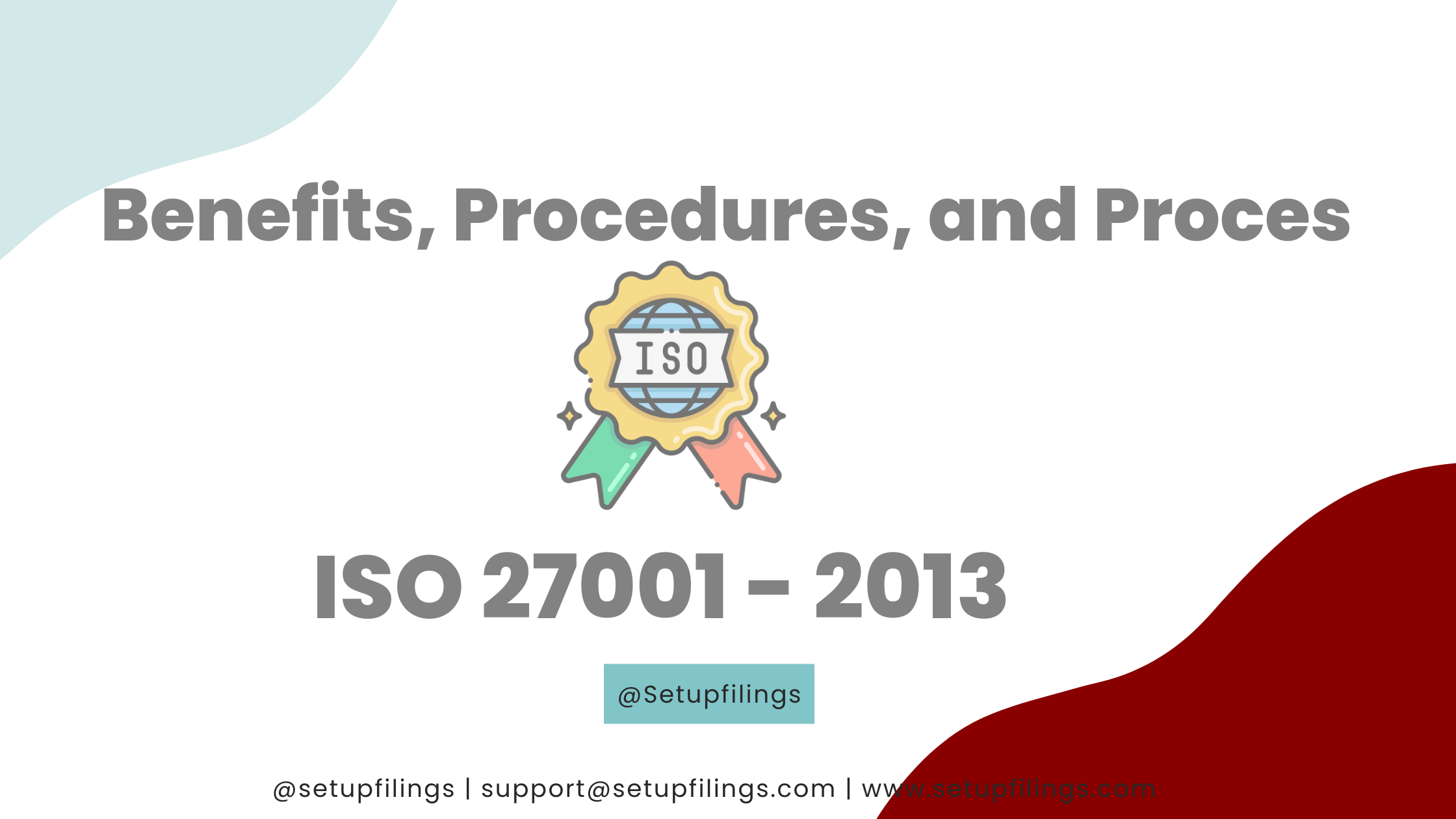
Expert Guide to ISO 27001 – 2013 Certification
What exactly is ISO 27001: 2013?
This internationally recognized standard aids in the management of information security risks. ISO 27001 Certification requires you to demonstrate to your clients and stakeholders that your firm fully manages information security. ISO 27001:2013 is the most recent version of ISO 27000, which specifies a set of standards for an Information Security Management System (ISMS). This standard takes a process-based approach to the establishment, implementation, operation, monitoring, maintenance, and improvement of ISMS.
ISO 27001:2013 can be implemented in:
This certification is appropriate for any organization, regardless of size or industry. The standards are best suited to industries where information security is vital, such as health care, banking, finance, government, and information technology. ISO 27001:2013 can also be used in organizations that manage large amounts of data and information on behalf of other organizations, such as IT outsourcing firms and data centers.
Learn : The Advantages of ISO 27001:2013
Increasing market share and improving reputation:
Your company’s data will be more safe if you embrace and incorporate this internationally recognized security standard. Cyber threats are quite widespread today, causing significant damage to a company’s brand and, finally, financial ruin. As a result, having an ISMS is required to safeguard the firm from such cyber attacks. Because you are strictly protected and well-managed with your data, the certification is very desirable to your company’s shareholders.
Increases customer retention and generates new business:
Applying ISO 27001 demonstrates that you are committed to maintaining high levels of security. It strongly assures your existing clients that your company is prepared to take any necessary security measures to protect their personal data, hence assisting in client retention. ISO 27001:2013 assists your organization in gaining new business and customers by proactively securing their data.
Reduces the number of third-party vendor reviews:
When you get ISO 27001:2013 certification, it shows that your company has a full-fledged security program. It streamlines your partner’s due diligence procedure and allows you to reduce some requirements of proof, such as presenting full security papers. It expedites and streamlines your company’s security verification process.
Comply with regulatory obligations:
Following ISO 27001:2013 helps you satisfy security controls and requirements for laws such as the NIS directive, GDPR, and others. Adopting ISO 27018 is especially recommended for organizations that are heavily involved in cloud computing and multinational data processing.
What actions are required for ISO 27001:2013 certification?
Engage an ISO 27001 consultant:
It is critical to have a knowledgeable individual in charge of deploying ISMS. Organizational leadership is essential for a company’s success. All existing information security arrangements should be gap-analyzed against the criteria of ISO 27001:2013. The gap analysis results aid in the development of a solid foundation for implementing ISO 27001:2013.
Create a management framework:
This is the set of processes that a corporation must follow in order to accomplish its ISO 27001 implementation goals. They comprise ISMS accountability assertion, activity timetable, and regular audits for continuous improvement.
Carry out training:
Staff awareness workshops are critical for increasing ISMS awareness throughout the company. It may force all employees to adjust their working habits, such as adhering to a clean desk policy and securing their laptops while they are not in use.
Examine and update the necessary documentation:
Documentation is essential to support the ISMS processes, policies, and procedures. Whilst writing policies and procedures is a time-consuming activity, ISO 27001 professionals created documentation templates that may handle the majority of your work. These prepared templates provide expert direction to assist any firm in meeting all of the ISO 27001:2013 documentation standards.
Perform an internal audit:
ISO 27001:2013 demands internal ISMS audits at predetermined intervals. A manager in charge of ISO 27001 compliance will be in a critical position to lead the audit process. If you did not select a registrar, you must select the appropriate organization for this audit. Registration audits should only be performed by an impartial registrar.
Certification Audit:
At the first stage of the audit, the auditor will examine if your paperwork meets the ISO 27001:2013 criteria and will notify you of any nonconformity areas and management system changes. Once any recommended adjustments have been implemented, your organization must be prepared for the Stage 2 registration audit. The auditor will undertake a comprehensive examination to determine whether you are in compliance with the ISO 27001:2013 standard in the second stage of the audit. With the proper preparation, certification can be obtained in as little as 12 months. The accreditation is solely determined by the size and complexity of the management system’s scope.
Visited 189 Times, 1 Visit today
